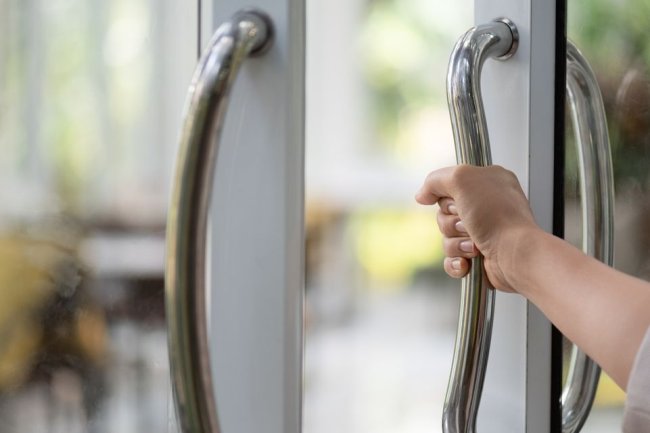A Simple Fan Can Fix the Hottest Day
Scary stories about the weather ignore the simple things we do to keep cool. By Mark Naida July 14, 2023 4:06 pm ET A technician repairs an air conditioning unit in Austin, Texas, July 10. Photo: Brandon Bell/Getty Images Austin, Texas The summer weather here is remarkably consistent, and on weather apps it is usually presented as a frightening shade of red. The current outlook is a high of 101 to 104 degrees for the foreseeable future. I don’t prefer it to be this hot, but like tens of millions of Americans who choose to live in a place with an unreasonable climate, I make do. My Michigan relatives express horror that I live in a place that bears some resemblance to an oven for part of each year, but I reply that I spend less time being hot here than I did when I lived in Michigan or New York. The answer is simple: Here we


A technician repairs an air conditioning unit in Austin, Texas, July 10.
Photo: Brandon Bell/Getty Images
Austin, Texas
The summer weather here is remarkably consistent, and on weather apps it is usually presented as a frightening shade of red. The current outlook is a high of 101 to 104 degrees for the foreseeable future. I don’t prefer it to be this hot, but like tens of millions of Americans who choose to live in a place with an unreasonable climate, I make do.
My Michigan relatives express horror that I live in a place that bears some resemblance to an oven for part of each year, but I reply that I spend less time being hot here than I did when I lived in Michigan or New York. The answer is simple: Here we have good air conditioning. Everywhere.
In Michigan, my grandmother lived in an old brick house that lacked air conditioning. She would put box fans at the front and back doors to draw air through the main corridor and cool the house. I don’t remember it working. Some of my books bear sweat stains from summer days reading in my uncooled college apartment, and my New York apartment’s small window unit cooled unevenly, to say the least. Waiting underground for a train in Manhattan in the summer is the closest I’ve come to being baked alive. But in Texas you hear just as many complaints about being too cold inside than it being too hot outside.
The recent scuttlebutt about the hottest day ever in our planet’s history, which was thoroughly debunked in these pages, exemplified a lot of the most wrongheaded conventions of weather reporting meant to scare up support for climate policies. This shade of yellow journalism ignores the fact that there are more deaths from excessive cold than from excessive heat each year, and it is often written as if everyone lives outside, has little shade, and walks around in the middle of the day.
If some enterprising meteorologist could develop a way to gauge the average temperature experienced by humans in a place, then we could have a more accurate picture of the climate, and whether innovations are keeping up with any measurable climate change.
Such a measure would account for the fact that people who live in hot climates exercise outside in the morning or at sunset. They spend more time at the pool. Parents buy battery-powered misting fans for strollers. They let the car AC run for a while before they get in and remember to bring water wherever they go. The fixes for heat aren’t complex, or at least they don’t need to be as complex as having various government agencies quixotically redesign the U.S. economy. Amazon will drop a fan at your front door in a day or two at most.
Civilization really got rolling in Mesopotamia, where summer temperatures regularly get into the 110s, so humans have been dealing with high temperatures long enough to know how to adapt. Even if the world is heating up inexorably, we have technology to mediate its effects, and the media should stop pretending we don’t.
Mr. Naida is an assistant editorial features editor at the Journal.
Journal Editorial Report: Progressive policies helped create the orange smoke storm. Images: AP/NurPhoto via ZUMA Press Composite: Mark Kelly The Wall Street Journal Interactive Edition
What's Your Reaction?






















